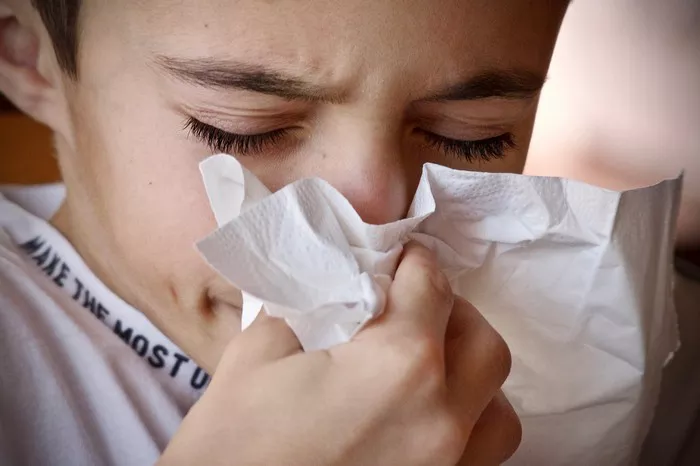Allergy shots, also known as allergen immunotherapy, are a common treatment option for individuals suffering from allergies. While these shots can effectively alleviate symptoms and improve quality of life for many, it’s essential to understand the potential side effects associated with this treatment. In this comprehensive guide, we’ll delve into the various side effects of allergy shots, ranging from common reactions to more severe complications.
Allergy Shots
Before delving into the side effects, it’s crucial to understand how allergy shots work. Allergy shots involve administering small doses of allergens to desensitize the immune system gradually. By exposing the body to allergens in controlled amounts over time, the immune system becomes less reactive, reducing the severity of allergic reactions.
Allergy shots are typically recommended for individuals with severe allergies who haven’t found relief from other treatments like antihistamines or nasal sprays. Common allergens targeted by allergy shots include pollen, dust mites, mold, pet dander, and insect venom.
Common Side Effects
Injection Site Reactions: One of the most common side effects of allergy shots is localized reactions at the injection site. This may include redness, swelling, warmth, or itching. These symptoms usually resolve within a few hours of receiving the injection.
Systemic Reactions: Some individuals may experience systemic reactions, which involve symptoms beyond the injection site. These can include sneezing, nasal congestion, coughing, wheezing, or hives. Systemic reactions typically occur within 30 minutes of receiving the injection but can be managed with appropriate medical intervention.
Mild Symptoms: In some cases, individuals may experience mild symptoms such as fatigue, headache, or mild stomach upset. These symptoms are usually transient and resolve on their own.
Delayed Reactions: Occasionally, individuals may experience delayed reactions, with symptoms appearing several hours after the injection. These can include persistent redness, swelling, or itching at the injection site.
Managing Common Side Effects
Communication with Healthcare Provider: It’s essential for patients to communicate any side effects or concerns with their healthcare provider. Your allergist can provide guidance on managing side effects and adjust your treatment plan if necessary.
Appropriate Medications: Over-the-counter medications such as antihistamines or corticosteroid creams can help alleviate mild symptoms like itching or swelling. Your allergist may recommend specific medications based on your individual needs.
Observation: After receiving an allergy shot, patients are typically observed in the healthcare provider’s office for a period to monitor for any immediate adverse reactions. This allows for prompt intervention if needed.
Follow-Up Visits: Regular follow-up visits with your allergist are crucial to monitor your progress and adjust your treatment plan as needed. These visits also provide an opportunity to discuss any ongoing side effects or concerns.
Less Common Side Effects
While most individuals tolerate allergy shots well, some may experience less common side effects. These can include:
Anaphylaxis: Although rare, anaphylaxis is a severe allergic reaction that can be life-threatening. Symptoms may include difficulty breathing, rapid heartbeat, swelling of the throat, or a sudden drop in blood pressure. Anaphylaxis requires immediate medical attention and may necessitate the use of epinephrine.
Asthma Exacerbation: Individuals with underlying asthma may experience exacerbation of their symptoms after receiving allergy shots. This risk is typically minimized by adjusting the dosage and closely monitoring patients with asthma.
Ocular Symptoms: Some individuals may experience ocular symptoms such as itching, redness, or tearing after receiving allergy shots. These symptoms are usually transient but should be reported to your healthcare provider if they persist.
Rare Systemic Reactions: In rare cases, allergy shots can trigger systemic reactions such as generalized hives, gastrointestinal symptoms, or even neurological symptoms. These reactions require prompt medical evaluation and may necessitate adjustments to the treatment plan.
Risk Factors and Precautions
Certain factors may increase the risk of experiencing side effects from allergy shots. These include:
Underlying Medical Conditions: Individuals with certain medical conditions such as cardiovascular disease, uncontrolled asthma, or autoimmune disorders may be at higher risk of experiencing adverse reactions to allergy shots. Your allergist will carefully evaluate your medical history before recommending this treatment.
Medication Interactions: Some medications, such as beta-blockers or angiotensin-converting enzyme (ACE) inhibitors, can increase the risk of severe allergic reactions to allergy shots. It’s essential to inform your healthcare provider of all medications you are taking before starting allergen immunotherapy.
Pregnancy: While allergy shots are generally considered safe during pregnancy, it’s essential to discuss the potential risks and benefits with your healthcare provider. Close monitoring may be necessary to ensure the safety of both the mother and the baby.
Children and Elderly: Children and elderly individuals may be more susceptible to side effects from allergy shots. Special consideration should be given to adjusting the dosage and closely monitoring for any adverse reactions in these populations.
Conclusion
Allergy shots are a valuable treatment option for individuals suffering from severe allergies, offering long-term relief and reducing the need for medication. While side effects can occur, most are mild and manageable with appropriate medical intervention. By understanding the potential risks and benefits of allergy shots and closely following the guidance of your healthcare provider, you can safely undergo allergen immunotherapy and enjoy improved quality of life.
[inline_related_posts title=”You Might Be Interested In” title_align=”left” style=”list” number=”6″ align=”none” ids=”5993,5991,5985″ by=”categories” orderby=”rand” order=”DESC” hide_thumb=”no” thumb_right=”no” views=”no” date=”yes” grid_columns=”2″ post_type=”” tax=””]

































